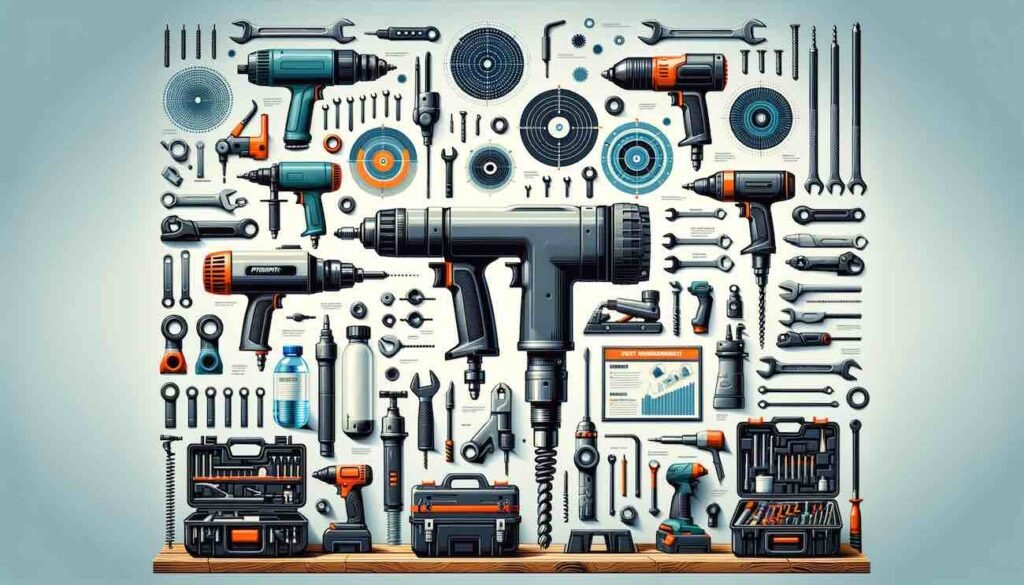A reliable and comprehensive tool kit is essential for any mechanic, whether a seasoned professional or a DIY enthusiast. The right tools can make all the difference in efficiency, safety, and the quality of your work. This guide will cover the must-have tools for any mechanic tool kit, offering detailed insights into each tool’s functionality and importance.
Key Takeaway
A well-equipped mechanic tool kit is essential for efficiency, safety, and quality work. Invest in high-quality tools and proper storage solutions to ensure your toolkit meets your needs for various repair and maintenance tasks.
Why Having the Right Tools Matters
Imagine you’re working on a critical repair job deep in a car’s engine bay. The deadline is tight, and every minute counts. You reach for a socket wrench, but the only one available is the wrong size, causing frustration and delays. Now, picture the same scenario, but this time, your tool kit is meticulously organized and well-equipped with high-quality, precise tools. Each socket, wrench, and screwdriver fits perfectly, allowing you to work efficiently and safely. The repair progresses smoothly, showcasing your professional skills and expertise. Having the right tools boosts your efficiency and productivity, ensures safety, delivers high-quality results, and reflects professionalism that clients trust and respect. This transformation illustrates the profound impact investing in the right tools can have on your work and overall success.
Investing in a quality tool kit is crucial for several reasons:
- Efficiency: The right tools help you perform tasks more quickly and efficiently, saving you time and effort.
- Safety: Using the correct tools reduces the risk of injury and ensures that repairs are performed safely.
- Quality of Work: High-quality tools enable you to perform tasks accurately, leading to better results and fewer errors.
- Tool Longevity: Quality tools are more durable and reliable, providing long-term value.
Must-Have Tools for Every Mechanic Tool Kit
1. Sockets and Ratchets
Sockets and ratchets are essential for tightening and loosening bolts and nuts. A comprehensive socket set should include:
- Standard and Metric Sockets: Covering a range of sizes to handle various fasteners.
- Ratchets: With a comfortable grip and multiple tooth counts for different levels of precision.
- Extensions and Adapters: These are used to reach difficult areas and adapt socket sizes.
2. Wrenches
Wrenches come in various types and sizes, each serving a specific purpose:
- Combination Wrenches: Featuring an open end and a box end, useful for multiple applications.
- Adjustable Wrenches: Versatile tools that can fit various sizes of bolts and nuts.
- Torque Wrenches: Essential for ensuring bolts are tightened to the manufacturer’s specifications.
3. Screwdrivers
A variety of screwdrivers is necessary for different types of screws:
- Flathead and Phillips: These are the most common types used for various applications.
- Torx and Hex: For more specialized screws, often found in electronics and vehicles.
- Precision Screwdrivers: For small screws in delicate components.
4. Pliers
Pliers are versatile tools that can grip, cut, and bend materials:
- Needle-nose Pliers: Ideal for reaching into tight spaces and precision work.
- Slip-Joint Pliers: Adjustable for various tasks.
- Locking Pliers: Can hold objects securely in place.
5. Hammers
A selection of hammers is necessary for various tasks:
- Ball Peen Hammer: Used for metalworking.
- Claw Hammer: For general use, including driving and removing nails.
- Dead Blow Hammer: Delivers a controlled strike without rebound.
6. Diagnostic Tools
For modern vehicles, diagnostic tools are essential:
- OBD-II Scanner: This is for reading and clearing diagnostic trouble codes.
- Multimeter: Measures voltage, current, and resistance in electrical components.
7. Utility Knife and Tape Measure
Utility knives and tape measures are indispensable for cutting materials and measuring accurately.
8. Portable Work Light
A portable work light ensures you have adequate lighting in dark or confined spaces, improving visibility and safety.
9. Tool Storage Solutions
Tool storage solutions such as toolboxes, tool chests, and roll-up pouches help keep your tools organized and easily accessible.
Detailed Review of Popular Mechanic Tool Kits
For an in-depth look at some of the best mechanic tool kits available, check out the Budget-friendly mechanic tool kits selection on Tend Industrial Supplies. This review covers top tool kits’ features, benefits, and potential drawbacks to help you make an informed decision.
FAQs
- What are the most essential tools for a beginner mechanic? Beginner mechanics should start with a basic set that includes sockets and ratchets, wrenches, screwdrivers, pliers, and a hammer. These tools cover the most common tasks.
- How do I choose the socket or wrench that is the right size? Use a socket or wrench that fits snugly over the bolt or nut. Metric tools are measured in millimeters, while standard tools are measured in inches.
- What is the difference between a standard and a metric tool? Standard tools are measured in inches and fractions of inches, while metric tools are measured in millimeters. Ensure you have both types to cover all possible sizes.
- How should I store my tools to keep them in good condition? Store your tools in a dry, clean environment. Use toolboxes or chests with compartments to keep them organized and protected from damage.
- Why is it essential to have a portable work light? A portable work light improves visibility in dark or confined spaces, reducing the risk of mistakes and injuries during repairs.
Ready to upgrade your mechanic tool kit? Visit Pneumatic Tools and Accessories for a wide range of high-quality tools and storage solutions. For inquiries, email us at sales@pneumatictoolz.com. Equip yourself with the best tools today!



